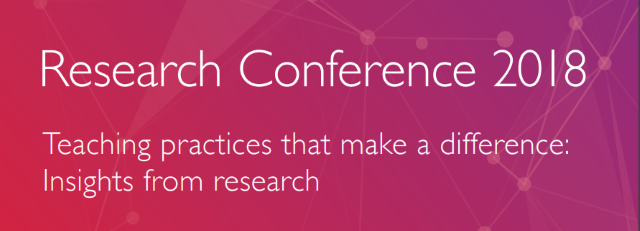
Monday 13 August 2018
Start Date
13-8-2018 9:00 AM
End Date
13-8-2018 10:00 AM
Subjects
Evidence based practice, Teaching effectiveness, Teaching methods, Monitoring (Assessment)
Abstract
Highly-effective teaching requires evidence-informed decision making at crucial points in the teaching process. First, effective teachers use quality evidence to establish the points individual learners have reached in their learning. This enables teachers to identify starting points for further teaching and learning and to ensure that each student is given learning opportunities at an appropriate level of challenge. In contrast, much teaching instead assumes all students will be appropriately challenged by common year-level curricula. The process of establishing and understanding where students are in their learning often requires detailed diagnostic evidence of individual misunderstandings and obstacles to learning progress. Second, highly effective teachers have a repertoire of evidence-informed teaching strategies and select from these to engage individual students, set ambitious but realistic learning goals and target teaching to address individual learning needs. Third, effective teachers use evidence to monitor the progress individuals make in their learning over extended periods of time. They use evidence of progress to assess the adequacy of an individual’s learning, to intervene when progress is inadequate and to evaluate the effectiveness of their own teaching strategies and interventions. In using evidence in these ways, highly effective teachers work with colleagues to build knowledge about better ways to use evidence to promote every student’s growth.
Recommended Citation
Masters, G. N. (2018, August 13). The role of evidence in teaching and learning [Paper presentation]. Research Conference 2018 - Teaching practices that make a difference: Insights from research. https://research.acer.edu.au/research_conference/RC2018/13august/2
Copyright Statement
Copyright Australian Council for Educational Research 2018
Place of Publication
Melbourne, Australia
Publisher
Australian Council for Educational Research (ACER)
ISBN
9781742865119
The role of evidence in teaching and learning
Highly-effective teaching requires evidence-informed decision making at crucial points in the teaching process. First, effective teachers use quality evidence to establish the points individual learners have reached in their learning. This enables teachers to identify starting points for further teaching and learning and to ensure that each student is given learning opportunities at an appropriate level of challenge. In contrast, much teaching instead assumes all students will be appropriately challenged by common year-level curricula. The process of establishing and understanding where students are in their learning often requires detailed diagnostic evidence of individual misunderstandings and obstacles to learning progress. Second, highly effective teachers have a repertoire of evidence-informed teaching strategies and select from these to engage individual students, set ambitious but realistic learning goals and target teaching to address individual learning needs. Third, effective teachers use evidence to monitor the progress individuals make in their learning over extended periods of time. They use evidence of progress to assess the adequacy of an individual’s learning, to intervene when progress is inadequate and to evaluate the effectiveness of their own teaching strategies and interventions. In using evidence in these ways, highly effective teachers work with colleagues to build knowledge about better ways to use evidence to promote every student’s growth.


Comments
Keynote 1